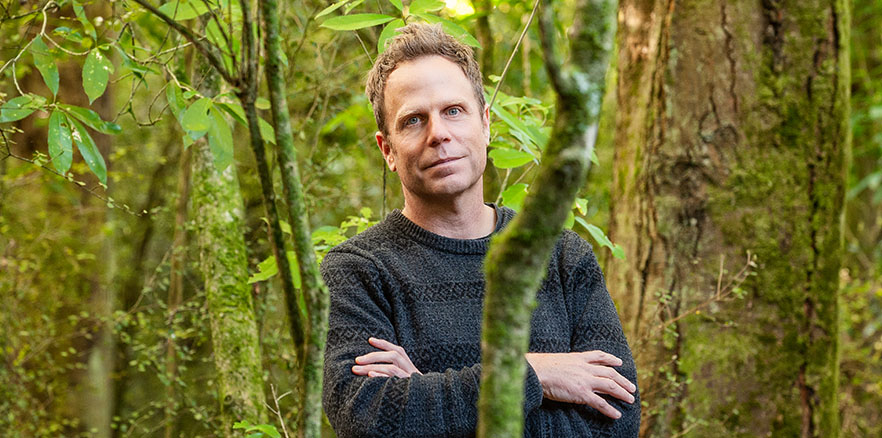
Dr Matt Larcombe
Understanding how plants evolve and why they exist where they do is becoming increasingly important as climate change alters environments.
It's a strong motivation for Dr Matt Larcombe (Botany), whose recent Marsden Fast-Start grant is to investigate the processes that control plant diversification.
“As climate changes the distribution of habitat over geological time scales, species can get isolated and then thrown back together again, and this can influence speciation. So, the Alps give us a chance to study evolution in action.”
The three-year project has been extended because of disruption during COVID, but Larcombe is about half-way through a large experiment at Invermay looking at how competition affects evolution.
As a plant evolutionary ecologist, he deals with issues such as diversification, hybridisation, biogeography and conservation, working with Otago colleagues and collaborators around the world.
His Fast-Start project to understand what controls long-term diversity patterns involves masses of data gathering on species distribution and climate, ecological niche modelling and phylogenetics (studying genetic relationships).
Research is a dream job for Larcombe, who grew up in Tasmania and fell in love with the bush at an early age.
In 2016 he joined Otago as a postdoc, and since the Marsden work started, he has won University of Otago Research Grants for two more projects close to home.
“As climate changes the distribution of habitat over geological time scales, species can get isolated and then thrown back together again, and this can influence speciation. So, the Alps give us a chance to study evolution in action.”
“Since 2020 we've been looking at symbiotic relationships between beech trees and the diverse fungi that attach to their root systems. They need each other to survive but their relationship is influenced by the environment and is likely to be impacted by climate change.
“We need to understand how the relationship works to determine if the forest trees and their fungi will be able to track habitats as the climate changes.”
Aotearoa New Zealand's relatively young Southern Alps offer a rare opportunity to study evolutionary processes over the last five million years. One of Larcombe's PhD students is building a family tree for mountain daisies, to help untangle what drives speciation.
Larcombe and colleagues are also contributing to New Zealand's One Billion Trees programme by taking a scientific approach to restoring native forests. They aim to improve efficiency by growing trees directly from seeds rather than planting saplings.
“There's still a way to go but if we can get it working and scaled up, it could allow us to reforest degraded landscapes more effectively and help promote forest migration under climate change.”
Recent awards
- Best Research Paper – Academic Staff (University of Otago Division of Science Awards) (2018)
- Award for Outstanding Achievement in Postgraduate Studies (University of Tasmania) (2014)
Funding
- Royal Society of New Zealand Te Apārangi
- Marsden Fund
- University of Otago Research Grants
- Ministry of Primary Industries
- Manatū Ahu Matua
- One Billion Trees Fund
More stories about early career researchers
This story is part of the research publication 'He Kitenga 2022: Talented Futures', which presents the different pathways into research that early career researchers follow.